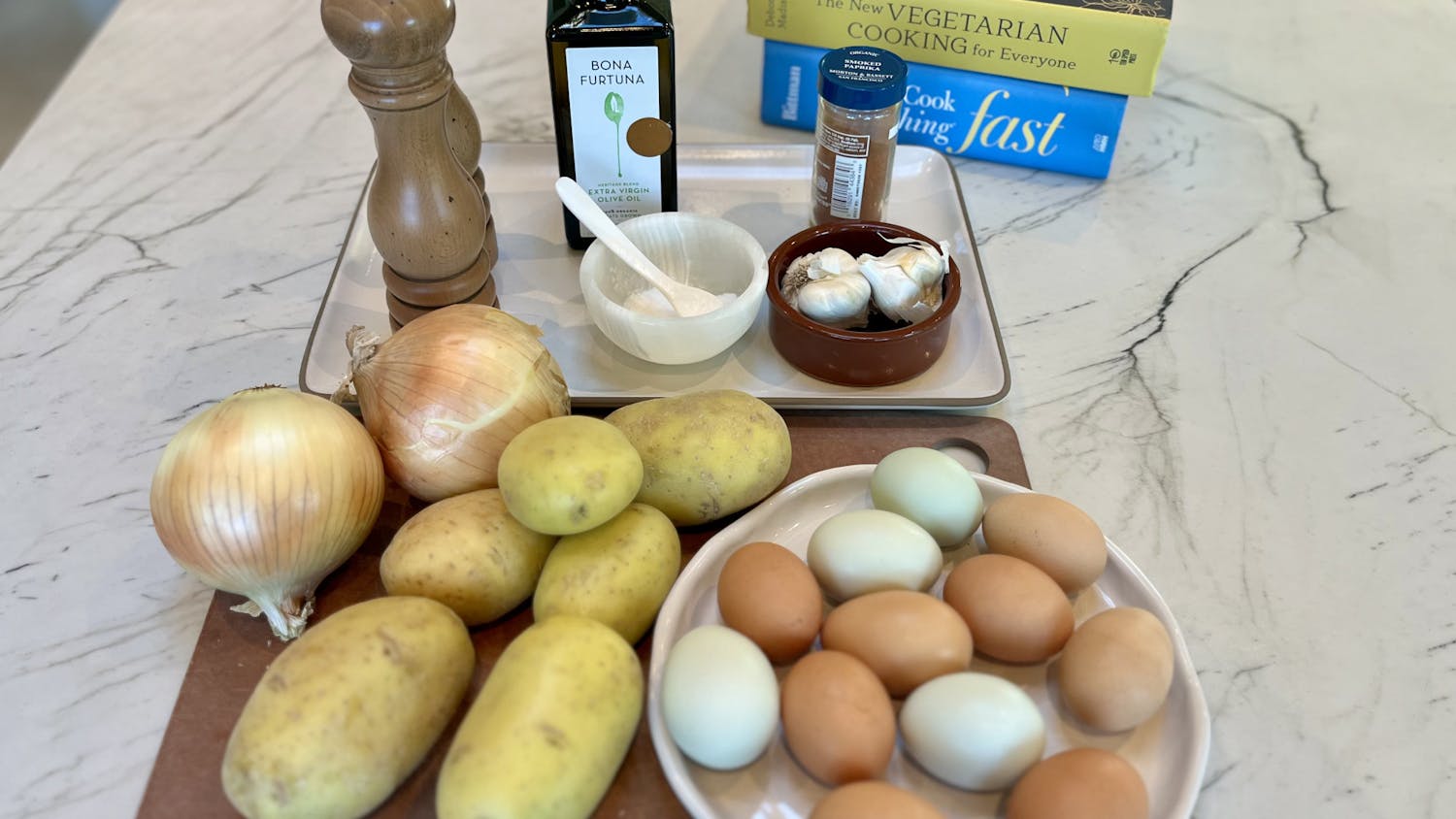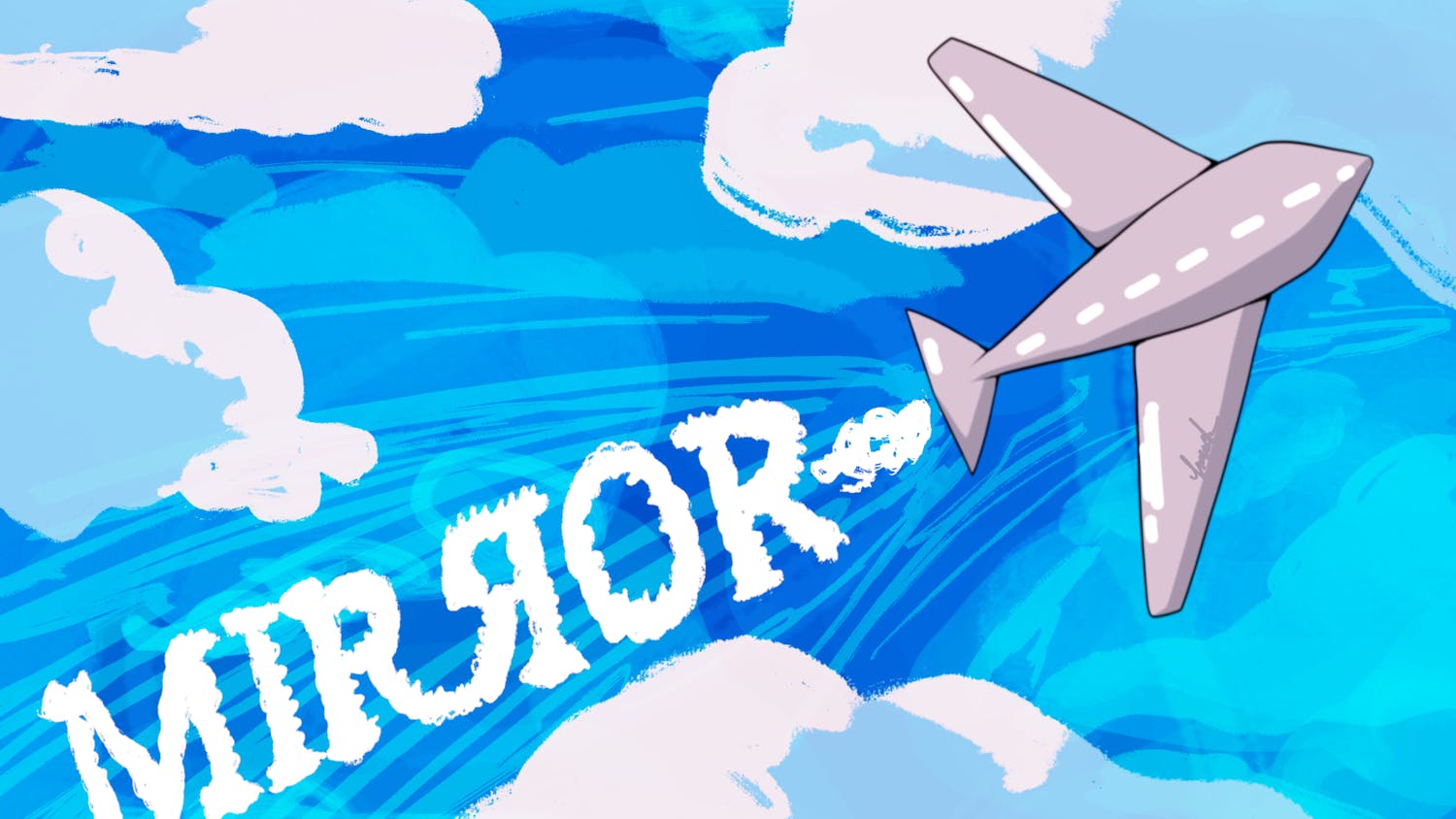The end of May signals one thing: Green Key weekend is upon us again.
This spring celebration, embedded in Dartmouth's history since 1899, brings students from all across campus outdoors for a weekend of music, activities and, hopefully, sun.
"It's a way for us to keep our sanity," Dan Marcusa '13 said. "It's sort of a Dartmouth holiday without a pretense, a weekend for weekend's sake, a celebration of relaxation."
Students interviewed by The Dartmouth were enthusiastic about the promise of beautiful spring sunshine in time for the weekend.
"I think of flawless weather and good music," Blair Randall '11 said.
After a dreary winter, students are looking forward to a weekend filled with warmth and the chance to pull out spring wardrobes again.
"It's about the culmination of spring term, and not having a care in the world," Max Pillsbury '12 said. "It's sort of like the last time to really hang out before finals."
In fact, the only place on campus that may feel a little lonelier than usual is Baker-Berry Library.
"It's after midterms, and people emerge from the library, from their study spots," Marcusa said. "You see people outside enjoying a beautiful day for the first time in a long time."
The end of Spring term also means the approach of summer, Grace Best '13 said.
"We're celebrating our last two weeks here on campus before we go home," she said.
Green Key offers a chance for students to focus on things other than schoolwork, Uthman Olagoke '11 said.
"It's people doing nothing and being lazy," he said.
While many students choose to go on off-campus programs and leave the bitter Hanover winter behind, Spring term sees a re-population of the small campus and a change of energy, Casey O'Keefe '13 noted.
"Everyone's back from their off-term, and the campus is pretty full during Spring," O'Keefe said.
Perhaps there's just something inherent about the weekend that makes students come together and let loose something that unifies them under one goal.
"Everybody kind of enters this Green Key mentality," Kashay Sanders '11 said. "It's people just wanting to let go of stress in a way that I don't normally see."
Part of this comes from the fact that Green Key has celebrations that begin earlier in the day, Marcusa said.
"There's a sense of euphoria because you're not confined to just going out at night," he said.
When asked what came to mind when thinking of the weekend, Somi Kim '13 answered simply, "day-drinking."
"It's just that because it's Green Key, people go much harder and are more obvious," she said. "Green Key is a celebration of college life, of being young."
To some, Green Key evokes festivities heavily associated with drinking, even a pretext to party several days in a row.
"It's an excuse to drink all weekend," Ariana Almas '11 said. "I'd say the College is condoning drinking for a weekend."
This does not necessarily indicate an undermining of Green Key's purpose, Shanel Balloo '11 said.
"It's seen as another excuse to party, but I don't think that devalues how much meaning and tradition is instilled in the weekend," Balloo said.
Others disagree that the weekend is particularly associated with alcohol.
"I think it's heavily associated with being social," Matthew Oatway '12 said. "There's an increase of day-drinking and parties during the day because it happens in the spring, but I think Green Key is about concerts and having fun, and drinking is secondary to all of those things."
It is up to students themselves to decide how they want to celebrate, Alix Peabody '12 said.
"Drinking is definitely associated with the weekend, but it's [students'] initiative to choose whether they're drinking or not," Peabody said.
Kim said that the weekend remains fun as long as students are cautious about their decisions.
"It's important for people to moderate," she said.
For many students, the biggest attractions of Green key are the concerts on fraternity lawns.
"A lot of people are excited for bands, and that's the highlight of their weekend," Olagoke said.
Students pointed to the abundance of other outdoor events like barbecues and Phi Delta Alpha fraternity's Block Party on Webster Avenue.
"The coolest part about it is definitely that campus is most open [and] there's so much stuff going on now," Ed Glackin '11 said. "Even if you're roaming aimlessly, there's a ton of people wherever you go. You can wander anywhere and find something that will be fun."
Green Key's lack of a designated sporting event adds to its friendly environment, Austin Prey '12 said.
"The fact that there's no underlying athletic event, like the football game or ski races, makes the atmosphere a lot more excited," he said.
A lack of tradition far from dampens student's excitement for Green Key, however.
Also, Green Key, unlike Homecoming and Winter Carnival, does not have an overarching theme. With less focus on freshmen and alumni, Green Key lets current students come together even in the absence of occasion.
"I think that's what so great about it," Oatway said. "Green Key is like the other weekends in the sense that it's a great time to showcase the strength and unity of the College, and it just shows how much people love it even when the weekend has no purpose."
Many said that despite the lack of a clear purpose, Green Key is their favorite big weekend.
"People love those traditions of Homecoming and Winter Carnival, but everyone would agree that Green Key is just more fun," Pillsbur y said. "It feels like a different kind of weekend."
Almas said that having a clear purpose would make the weekend even better.
"I think if it did have a theme, it would give the weekend some sort of legitimacy," she said. "I feel that the fact that no one really knows what it's about promotes the stereotypes about what the College is known for."
Others think the best purpose for Green Key would be no purpose at all. Ed Glackin '11 said the weekend doesn't need a cohesive theme in order to be successful.
"Green Key has made such a reputation for itself that it's self-sustaining it gains momentum," Glackin said. "It's kind of an inside joke that it's there for no reason, and that's pretty cool. It adds to the aura of the whole thing."
All of this begs the question, is there a bigger reason behind Greek Key's existence? Where is the history that is so much more visible during the other big weekends?
Most students interviewed said that they had no knowledge of any history associated with Green Key.
"Does it refer to the Green Key Society?" Almas asked. "And what do the words green key' even mean?"
Others remembered that the weekend was once linked to charity efforts.
"It used be a fundraising event for the Green Key Society, and there was annual ball," Oatway said. "They still have the ball I think, but not really the fundraising anymore."
Other students recounted stories heard in passing of an actual key.
"Someone once mentioned that the graduating class passes the key to the Green to the rising seniors," Caroline Barnhart '12 said. "Obviously there is no key to the Green."
In reality, the weekend does trace its roots to Green Key Society, a service organization, Pat Berry '81, a former member of the society, said.
"It goes back to what the society is about," Berry said. "Green Key Society was a service society, and we were on call for the administration and acted as ambassadors to the College."
Green Key also marks the last big weekend for graduating seniors, Balloo said.
"It's a culminating celebration for all the seniors who will be leaving [and] it represents one of those lasting memories for so many of us," she said. "I know I'll be looking forward to celebrating Green Key in my last term at Dartmouth."
The energy of the campus changes significantly with the arrival of Green Key, Berry said.
"The campus expands with the influx of people," Berry said. "Part of it is that it's a geographically remote college, so it's very obvious when there's a 10 percent increase in the population. It changes the feeling of the campus."
Alumni recalled fond memories of Green Key from decades ago when there were still chariot races and the Hums, an inter-fraternity singing competition.
"We spent a good amount of time building the fastest chariot and choosing the fastest runners always pledges," Andy Heller '79 said.
Students watching the race hurled eggs, flour and water balloons at the runners, while rivals attempted to undermine the other teams, Heller said.
"Fraternity bothers from competing frats would sabotage the chariots by sticking poles in the wheels," he said.
During the Hums, fraternity members rewrote witty lyrics to well-known songs and gave performances that were "85 percent tasteful" outside Dartmouth Hall, Heller said.
"It was political correctness run amok," Mike Collins '86 said. "The Hums for me were the highlight. They were just hysterical."
"Our Cohogs," a winning song from Theta Delta Chi fraternity, was brought back year after year despite, or perhaps because of, its controversial lyrics about women at the college, according to Heller.
"In one sense, the lyrics were pretty creative and most of us laughed, but it clearly went over the line," Heller said.
The song was especially harsh towards women, who did not feel welcome during the first years of coeducation, Berry said.
"It evolved into an opportunity to be naughty and lost the spirit of being clever," she said. "It definitely lost some of its wholesomeness."
The Hums' popularity rivaled that of the bonfire, Pam Bass '85 said.
"The fun of Green Key was equal to Homecoming," she said. "It was a big deal, and I remember thinking the entire time, The President's House is right there!'"
Members of the Class of 2014 said they are not worried about Green Key's lack of a unifying theme and look forward to their first experience of the ultimate Dartmouth weekend.
"I've heard upperclassmen say it's their favorite weekend of the year, so I'm excited," Jacqueline Taylor '14 said.
While not all are completely sure of what the weekend entails, they are nevertheless enthusiastic about the brief freedom from classes.
"It's a good break from studying," Kyle Bojanowski '14 said. "I'm excited for the concerts outside and not doing work."



